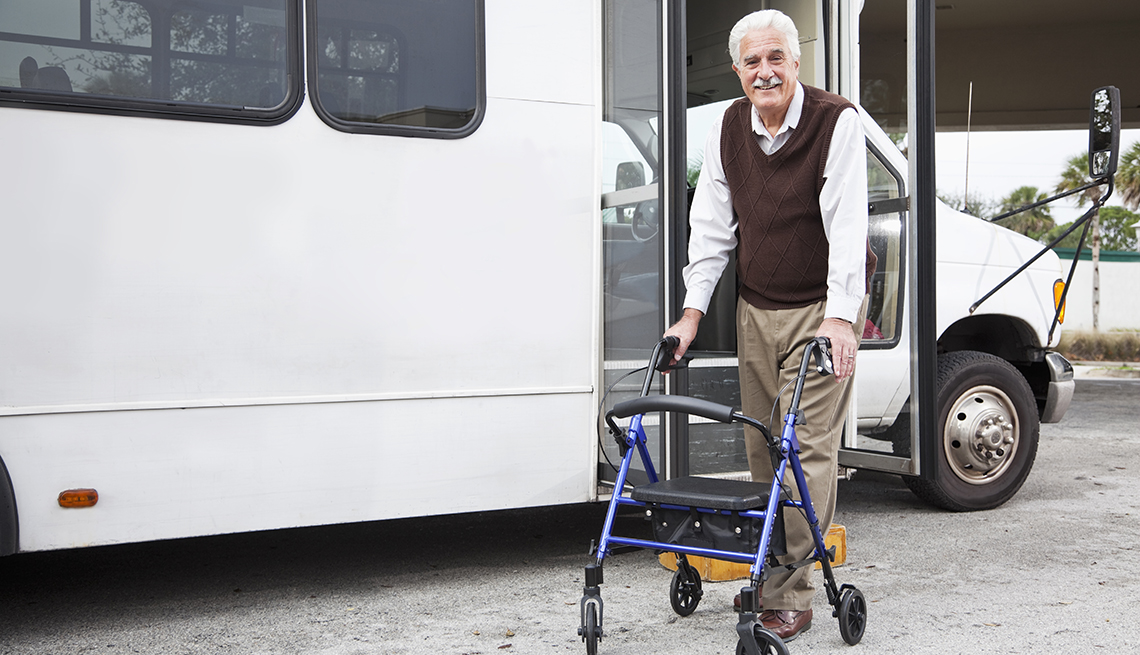Obtainable and Affordable Medical Transportation Options for Seamless Wellness Support
In the realm of medical care, the accessibility and affordability of clinical transportation are critical in making sure people can access the care they require when they need it. The ability to flawlessly navigate transport options can dramatically affect a person's capability to receive prompt clinical interest, follow-up care, and general wellness. From non-emergency medical transportation services to cutting-edge remedies like telehealth, the landscape of medical transportation is developing to fulfill the diverse needs of clients. Considering the value of this facet in health care distribution, checking out the selection of alternatives readily available becomes crucial for attending to spaces in accessibility and price.
Non-Emergency Medical Transportation Solutions

These solutions are staffed by experienced specialists who prioritize person convenience and security during transit. Vehicle drivers are furnished to handle people with differing medical requirements and guarantee that all journeys are smooth and worry-free - Medical Transportation Services Near Me. In addition, non-emergency clinical transport services typically use specialized lorries that are wheelchair-accessible, making them appropriate for a variety of patients with different wheelchair demands
Volunteer Vehicle Driver Programs
Volunteer vehicle driver programs contribute in providing transportation aid for people looking for non-urgent healthcare. These programs count on the generosity of volunteers who donate their time and cars to assist transportation people to and from medical consultations. By using volunteer drivers, companies can offer an affordable service for individuals that might not have accessibility to reliable transportation.
Among the essential advantages of volunteer driver programs is the individualized treatment and focus that patients obtain. Unlike traditional transport solutions, volunteer drivers frequently develop a connection with the individuals they aid, developing a compassionate and encouraging environment during what can be a difficult time. Furthermore, volunteer motorist programs can aid link the space for people staying in rural or underserved locations where mass transit alternatives may be limited.
Public Transport Options

One of the key advantages of public transportation is its extensive Bonuses accessibility in urban and rural locations alike. This extensive network permits individuals from diverse histories to travel to clinical appointments with relative convenience. Additionally, mass transit systems are usually geared up to accommodate individuals with handicaps, supplying available traveling options for those with mobility obstacles.

Ride-Sharing and Transport Network Companies
The advancement of modern transport choices for medical purposes expands beyond standard public systems like buses and trains to encompass the cutting-edge realm of ride-sharing and transportation network companies. Ride-sharing services such as Uber and Lyft have actually reinvented the means individuals take a trip to medical appointments, providing ease and versatility to people that may not have accessibility to their vehicles or standard mass transit. These platforms allow customers to ask for an adventure with the touch of a switch on their smartphones, supplying door-to-door service that can be especially advantageous for individuals with mobility challenges or those calling for help.
Transport network business (TNCs) have actually additionally played a considerable duty in connecting the space in clinical transportation solutions. Firms like Veyo and RoundTrip specialize in non-emergency medical transportation, accommodating individuals who require a greater degree helpful during their trips to medical centers. By partnering with doctor and insurance companies, TNCs guarantee that people can access trustworthy and timely other transport remedies, eventually adding to boosted health results and patient satisfaction.
Telehealth and Virtual Consultations
Enhancing medical care accessibility and ease, telehealth and virtual examinations have actually become essential elements in contemporary clinical practices, changing the means clients engage with doctor. Telehealth leverages technology to assist in remote interaction between patients and medical care experts, supplying a broad variety of services such as digital assessments, remote surveillance, and digital prescriptions. Virtual assessments make it possible for individuals to seek medical suggestions, medical diagnosis, and therapy from the convenience of their homes, eliminating the requirement for physical visits to health care facilities. This approach not only conserves time and reduces transportation costs for patients but likewise improves the overall efficiency of medical care distribution.
In addition, telehealth plays an important duty in expanding medical services to underserved areas, country areas, and individuals with limited mobility. By damaging down geographical obstacles and raising medical care outreach, telehealth promotes very early intervention, connection of care, and patient engagement. As innovation remains to advancement, telehealth is positioned to play an increasingly considerable duty fit the future of medical care delivery, cultivating enhanced health end results and individual complete satisfaction.
Conclusion

From non-emergency medical transportation services to cutting-edge services like telehealth, the landscape of medical transport is evolving to fulfill view publisher site the diverse needs of patients.Non-Emergency Medical Transportation Solutions help with the safe and prompt transport of people needing non-urgent medical care to and from healthcare facilities.The evolution of contemporary transport choices for clinical functions extends past standard public systems like buses and trains to incorporate the ingenious world of ride-sharing and transportation network companies.Transport network firms (TNCs) have likewise played a considerable function in bridging the gap in clinical transportation solutions. Non-Emergency Medical Transportation Providers, Volunteer Motorist Programs, Public Transportation Options, Ride-Sharing and Transport Network Companies, and Telehealth and Virtual Consultations all play an important role in attending to transport obstacles to healthcare accessibility.